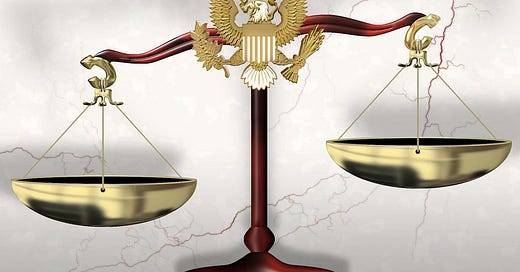A Simple Explanation
As a fundamental feature of the republican form of American government, checks and balances can be best exemplified by its separation of powers. This separation endues powers among the various branches to keep one another in check. The executive can veto the legislative, the legislative can impeach the executive and judicial, and the judicial can interpret unconstitutionality.
Key Concepts
Separation of Powers – A principal in governance in which the various authorities of the government are split into different branches, most notably 3 branches in the United States. The executive branch, the legislative branch, and the judicial branch.
Presidential System – A system in which the head of state is the chief executive of the executive branch selected by the people. (In America, the electoral college also chooses the chief executive)
Parliamentarian System – A system in which the head of state is the prime minister of the legislative component of the government, selected by parliament.
Unconstitutionality – The judicial branch can validate or invalidate the behavior of the government in regard to the U.S. Constitution.
Main Takeaways
Not all democracies implement the concept of checks and balances the same way, the U.S. separates power into a tripart system while parliamentarian governments in Europe created special powers for their parliaments to utilize, known as “a parliament’s prerogative to adopt a no-confidence vote in a government; the government, or cabinet, in turn, ordinarily may dissolve the parliament.”
As stated before, in the United States, as a presidential system, three branches were created with individualized powers for each “For example, Congress has the power to create laws, the President has the power to veto them, and the Supreme Court may declare laws unconstitutional.”
Overall, checks and balances are the main way in which democratic governments keep the power of the government from growing too authoritarian. There is therefore no one elected official whose power too far exceeds another. Such a system is no doubt greatly necessary but can be precisely what a critic of democracy might point out as an inefficiency for the government to act when its people most need it to.



